Jonathan’s return to Gabon and Victor update
I’m very happy to report that Puerto Rican manatee Masters student Jonathan Perez-Rivera has returned to Gabon to continue his work with Victor! Jonathan arrived back in Gabon several weeks ago, but this has been in the works for several months, because it’s now time to start weaning Victor off his milk formula and onto an adult manatee diet of native plants so that he’ll be able to be released back to the wild (hopefully next winter). Since Victor’s Gabonese caretakers don’t have previous experience transitioning a manatee to a plant diet, and because Jonathan wanted to continue his study of Victor’s growth as part of his degree, it was a perfect match when we needed a volunteer to help train the Gabonese staff. He’ll be there for four months and will be providing regular updates when he can from that remote location (cell phone and internet signals are very weak) which I’ll post here. I’d like to thank Georgia Aquarium again for generously providing the funds that allowed us to get Jonathan back to Gabon, as well as covering the costs of Victor’s caretakers and equipment. Thanks also to Karen Azeez for all the photos below!
Brice and Jonathan conduct a health assessment on a very chubby Victor. He now weighs 90 kg! Another of Jonathan’s first tasks was to build the new stretcher seen here (they used fishing net and thick bamboo for poles- very creative!) to lift Victor so they can weigh him and safely move him in and out of his enclosure for health assessments.
They also built him a quadrapod so they can suspend Victor’s new hanging 150 kg scale (he outgrew the 50 kg one) to weigh him weekly, so we can track his growth. Since Victor is the first West African manatee ever to be successfully raised in captivity, all of this basic information is new for the species.
During the health assessment blood, hair, and other samples are collected, and measurements and photos are taken. After almost 22 months in captivity, Victor is fairly used to the routine by now.
The next important activity is to increase the number and species of plants in Victor’s enclosure so he can begin eating native vegetation in place of his milk bottles. Because the site is so remote, there’s no chance of importing lettuce or other vegetables, and we think this is for the best anyway, because Victor will quickly learn to eat the types of plants his wild relatives feed on. Banio Lagoon has abundant aquatic vegetation everywhere, so collection of plants is not difficult!
Here Victor eats Crytosperma senegalense…
Then the leaves are examined to document what he ate…so far he is definitely choosing some species and not eating others that manatees in Africa have been documented feeding on. But that may change, or he may have preferences, just as some people prefer burgers and others prefer pizza.
So it’s an exciting time for young Victor! I know I speak for all of Victor’s care team when I say we are really happy Jonathan is back! Keep up the good work!

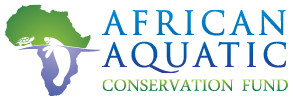


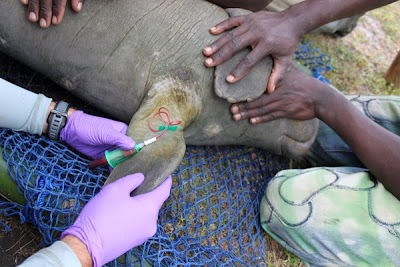
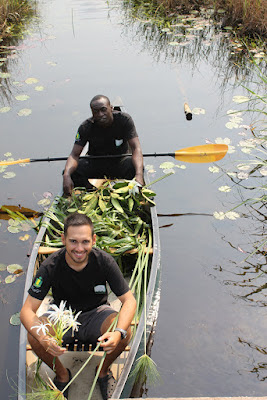
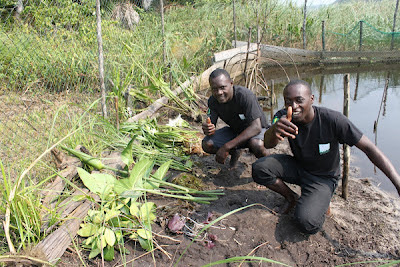
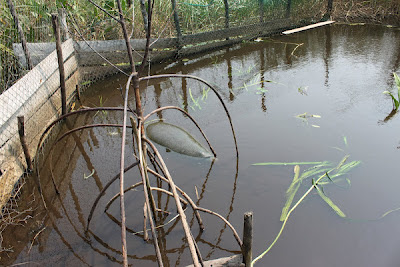
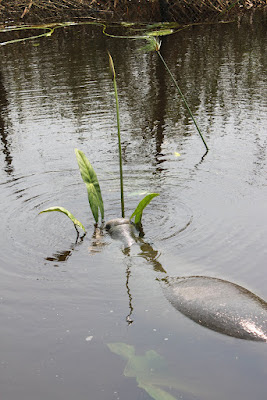
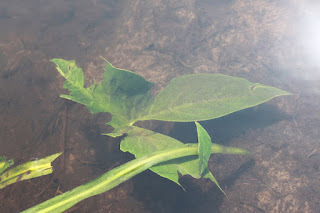
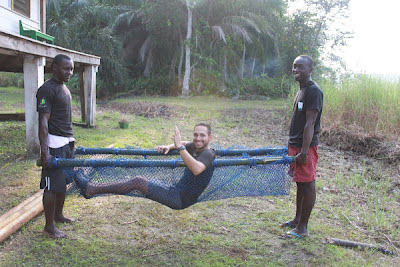
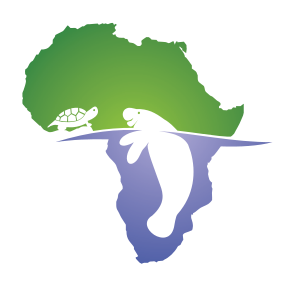
No Comments